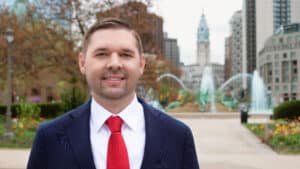 Nursing homes are entrusted with the care and safety of some of the most vulnerable individuals in our communities. Families place their loved ones in these facilities with the expectation that they will be protected from harm and cared for with diligence and compassion. Unfortunately, recent events in Pennsylvania have highlighted troubling lapses in this duty—particularly when it comes to emergency preparedness and fire safety.
Nursing homes are entrusted with the care and safety of some of the most vulnerable individuals in our communities. Families place their loved ones in these facilities with the expectation that they will be protected from harm and cared for with diligence and compassion. Unfortunately, recent events in Pennsylvania have highlighted troubling lapses in this duty—particularly when it comes to emergency preparedness and fire safety.
Serious fires at Pennsylvania nursing homes have brought a painful truth to light: some facilities are failing in their basic duty to protect residents from foreseeable, preventable dangers.
On January 2, 2025, a 3-alarm electrical fire tore through the Mount Carmel Senior Living Community in Northumberland County, forcing the emergency evacuation of vulnerable residents. These individuals—many elderly and frail—were rushed to local hospitals and alternative facilities. While no deaths were reported, the trauma, confusion, and danger experienced by residents and their families are undeniable. Early reports suggest that the facility’s emergency response was chaotic, raising troubling questions about whether staff were adequately trained or prepared for such an event.
Even more alarming is the case of Barclay Friends Senior Living Community in West Chester. In 2017, a fire ignited in the building—but the sprinkler system, which should have activated immediately, failed due to a closed valve. This kind of failure isn’t just an oversight—it’s gross negligence. Sprinkler systems are critical life-saving devices, and a non-functioning system in a facility that cares for elderly and immobile residents is simply unacceptable. The fire killed four residents and injured several others.
These aren’t isolated accidents. They are symptoms of systemic negligence—failures in fire safety protocols, lack of proper staff training, and critical oversights in maintenance. When nursing homes cut corners, ignore regulations, or fail to take safety seriously, residents pay the price.
Under Pennsylvania and federal law, nursing homes must provide a safe environment, free from hazards that could cause injury or death. This includes:
Functioning fire prevention systems (sprinklers, alarms, fire doors)
Regular inspections and system maintenance
Emergency preparedness training for staff
Clear and practiced evacuation plans
When a facility fails to meet these standards, whether due to cost-cutting, understaffing, or general negligence, they may be held legally responsible for any harm that occurs.
If your loved one has suffered an injury, trauma, or even death due to a nursing home fire or safety failure, it’s critical to speak with a Philadelphia nursing home neglect lawyer as soon as possible. You may have a legal claim if:
Your loved one was injured or displaced by a nursing home fire
The facility’s fire safety systems failed or were improperly maintained
Staff were unprepared or failed to evacuate residents appropriately
You suspect general neglect or failure to comply with safety regulations
A lawyer experienced in nursing home neglect cases in Philadelphia can help you understand your rights and fight for the justice your loved one deserves.
A skilled nursing home negligence attorney can:
Investigate the cause of the fire or safety failure
Obtain internal documents, inspection reports, and maintenance logs
Determine whether state or federal safety regulations were violated
File a personal injury or wrongful death claim on your behalf
Help your family recover medical expenses, pain and suffering, and other damages
At its core, this isn’t just about lawsuits—it’s about ensuring that nursing homes are held accountable when they fail to protect those in their care.
When nursing homes fail to uphold basic safety standards, residents suffer. The recent fires in Pennsylvania are a tragic reminder that these facilities must be monitored and held accountable when they cut corners on safety.
If your loved one has been harmed due to a nursing home fire or safety violation, contact a trusted Philadelphia nursing home neglect lawyer at the Wieand Law Firm today for a free consultation. Your action can protect your family—and potentially save others from similar harm.